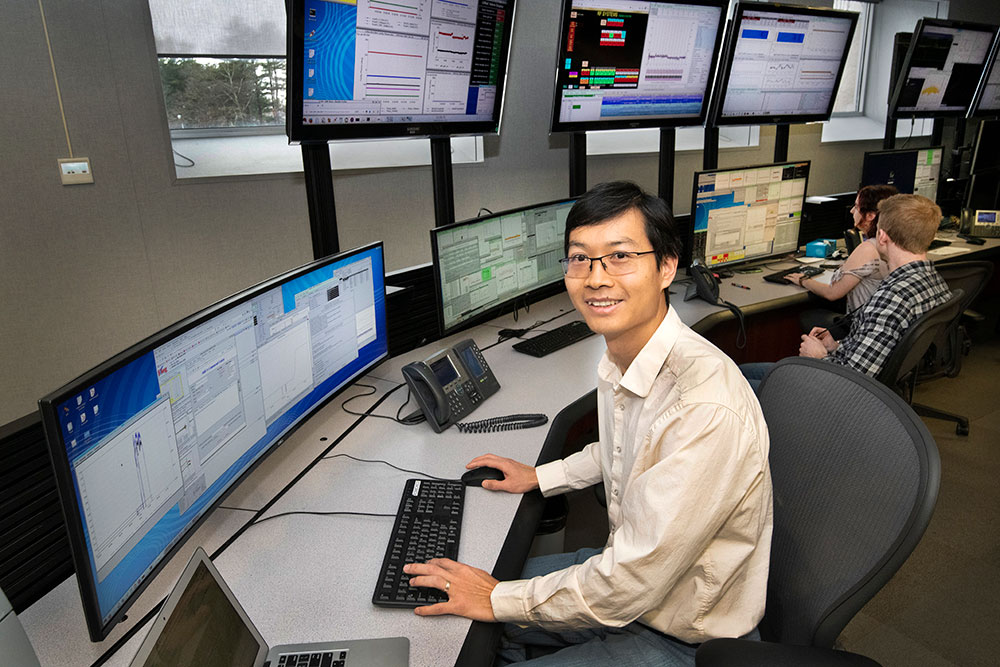533rd Brookhaven Lecture: 'Colliding Beams to Study Matter'
June 20, 2023
A long time ago, in what may feel like a galaxy far, far away, the Greek philosopher Democritus sought to answer the question, "What is the universe made of?" He proposed the concept of an unbreakable atom.
Some 2,500 years later, we know that visible matter in the universe is, indeed, made of atoms. Those atoms are, however, "breakable." Scientists have discovered far more inside: a nucleus and surrounding electrons, protons and neutrons inside the nucleus, and quarks and gluons inside the protons and neutrons.
And questions remain.
Accelerator facilities that collide beams of particles, such as the Relativistic Heavy Ion Collider (RHIC), located at the U.S. Department of Energy's (DOE) Brookhaven National Laboratory, have helped scientists better answer questions like Democritus'. The future Electron-Ion Collider (EIC)—which will be built at Brookhaven Lab through a partnership between DOE, Brookhaven, and Thomas Jefferson National Accelerator Facility—will help even more.
On Wednesday, June 21, join Chuyu Liu of Brookhaven Lab's Collider-Accelerator Department (C-AD) for the 533rd Brookhaven Lecture. Liu's talk is titled, "Colliding Beams to Study Matter." This hybrid event will be held at 4 p.m. Attendees can join in two ways:
- In person in the Physics Large Seminar Room (Bldg. 510)
- Virtually on Zoom
During Liu's talk, he will give a brief history on particle accelerators and Brookhaven Lab's contributions to advances in the field of accelerator physics. He will then provide an overview of the RHIC facility and the Beam Energy Scan (BES) experiments that took place there. He will discuss challenges associated with operating BES experiments at low energies and measures taken to improve performance. He will also discuss plans for the transition from RHIC to the EIC.
About the Speaker
Liu is a physicist, who supports beam operations for RHIC and various accelerator physics experiments. He is also the deputy manager for the Hadron Storage Ring for the EIC project. He was the RHIC run coordinator, leading BES Phase-II operations, from 2019 to 2021.
Liu joined C-AD and Brookhaven Lab as a postdoc in 2010. He rose through the ranks, being named assistant physicist in 2012, associate physicist in 2013, and physicist in 2015. Liu also serves as a mentor in Brookhaven Lab's Postdoc Mentorship Program. He is the membership officer for Brookhaven Women in Science.
Before joining Brookhaven, Liu was a visiting scientist and research assistant at Thomas Jefferson National Accelerator Facility from 2006 to 2010. He earned a Ph.D. in physics from Peking University in China. He earned a Bachelor of Science in physics from Lanzhou University, also in China.
Brookhaven National Laboratory is supported by the Office of Science of the U.S. Department of Energy. The Office of Science is the single largest supporter of basic research in the physical sciences in the United States and is working to address some of the most pressing challenges of our time. For more information, please visit science.energy.gov.
Follow @BrookhavenLab on Twitter or find us on Facebook.
2023-21312 | INT/EXT | Newsroom










